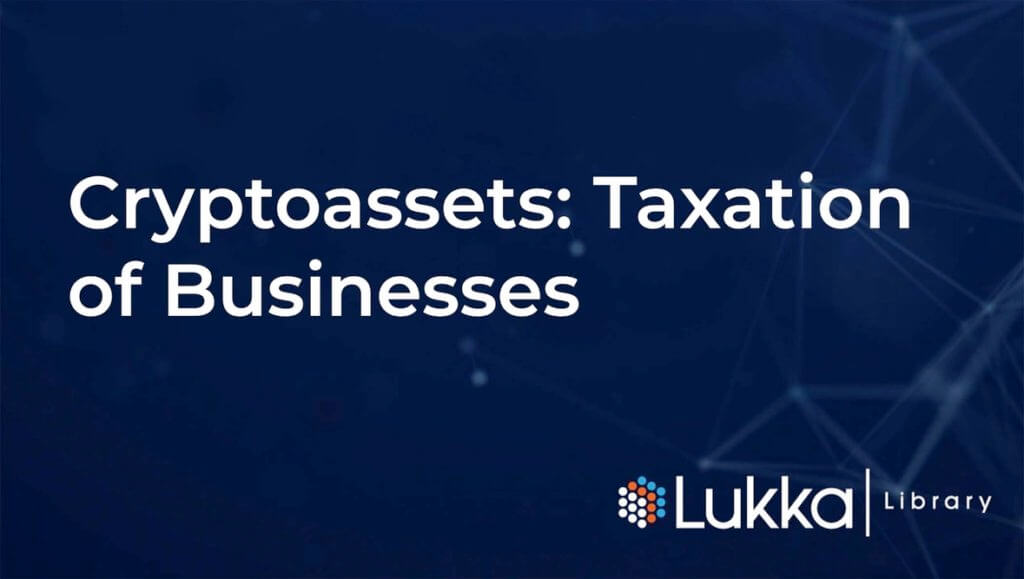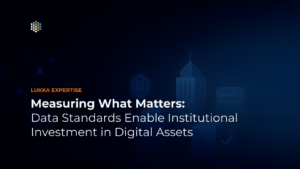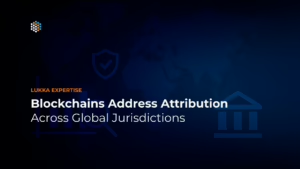Author: Jo Crookshank, Partner at Simmons & Simmons, LLP
The discussion in this document reflects legal principles as of February 06, 2020.
With the increasing interest in cryptocurrencies, such as Bitcoin, HMRC released updated guidance in December 2018 on the tax treatment of individuals on such assets and certain other exchange tokens (referred to by HMRC as “cryptoassets”) in its policy paper, “Cryptoassets for individuals”.
HMRC has now released its second such policy paper, “Cryptoassets: tax for business”. The paper expands on earlier guidance by applying it to the provisions for the taxation of companies and other business organizations.
Background
Cryptocurrencies, such as Bitcoin, are a type of digital money. They can be bought or sold with other currencies, used to purchase goods from sellers who are willing to accept cryptocurrencies as payment, make investments in various assets, and are being retained as investments themselves. Given the unique proprietary features of Bitcoin, there appears to be a degree of uncertainty and ambiguity as to whether Bitcoin and other similar cryptocurrencies would, legally, qualify as property for English law purposes.*
The technology which allows cryptocurrencies to work is known as “blockchain technology”. The blockchain is a database containing evidence of transactions between different users. Multiple networked computers hold all or part of a sequence of information, which is arranged into “blocks”. The information is sequenced in chronological order and added to the blockchain by the network without reference to users’ identities or personal details. The updated blockchain is then saved so rapidly across the network that it is almost impossible for a hacker to change the information contained on every single computer on the network in order to manipulate a transaction (assuming there are no vulnerabilities in the software). This effectively means that once a transaction has been recorded, it cannot be edited or deleted. It therefore acts as a distributed digital ledger that is secure and usually anonymous.
In HMRC’s December 2018 guidance for individuals, HMRC formally addressed the position of “exchange tokens” which encompass cryptocurrencies such as Bitcoin. HMRC defines such exchange tokens as being intended for use as a method of payment, making use of distributed ledger technology, and where the value of the tokens is based on their use as a means of exchange or investment, rather than being underpinned by any person, group, or asset. HMRC distinguishes these forms of tokens from utility or security tokens, as they do not confer any rights or access to goods or services, nor do they provide a debt or profits interest in a business.
That guidance on the tax treatment of Bitcoin, other cryptocurrencies, and relevant exchange tokens (referred to as “cryptocurrencies” or “cryptoassets” in the rest of this note) recognized two possible treatments for profits or gains made on cryptocurrencies: trading profits which will be subject to income tax, and capital gains which will be subject to CGT. For further details on the December 2018 guidance, see “Taxation of Bitcoin and other similar cryptocurrencies”.
Taxation of currencies generally
Where a person trades in foreign currencies on a regular basis, then the profits of that trade may be subject to tax as trading profits (and within the scope of income tax or corporation tax as appropriate).
In the absence of trading, all forms of property, other than sterling, are assets for capital gains purposes. As such, foreign currency is an asset for capital gains purposes and the disposal of foreign currency may, therefore, give rise to chargeable gains or allowable losses. In addition to the sale of foreign currency for sterling, there is also a disposal if foreign currency is used to purchase an asset, for example.
From a VAT perspective, transactions, including negotiation, concerning currency, bank notes, and coins used as legal tender are exempt from VAT, with the exception of collectors’ items, e.g. gold, silver or other metal coins or bank notes which are not normally used as legal tender or coins of numismatic interest.
The guidance expressly states that HMRC do not regard any of the current types of cryptoassets as “money” or “currency” such that none of the specific rules applying to such assets is applicable to cryptoassets.
The Taxation of Profits on Crypto Assets: Trading
Where a business regularly buys and sells cryptocurrencies, that business may be trading in cryptocurrencies and, as such, subject to income tax or corporation tax on the profits of the trade (or may accrue trading losses). Where losses arise, HMRC are likely to carefully consider if the badges of trade are present before allowing loss relief. The guidance suggests that normal factors should be considered in determining whether a trade exists, including the degree and frequency of the activity, the level of organisation and the intention (including risk and commerciality).
Where cryptoassets are held as part of an existing trade (for example, where received as payment for services or goods), then profits of a revenue nature will need to be included in the trade’s profits.
As well as confirming that cryptoassets are not “money”, the guidance states that cryptoassets will not give rise to loan relationships for the purposes of the corporation tax rules. This is because there is no counterparty standing behind the cryptoasset and, as such, it will not constitute a debt. Even if cryptoassets are loaned, HMRC take the view that this would not give rise to a loan relationship since there would be no “money debt”. (The normal loan relationship rules would, however, apply to loans backed by cryptoassets provided as collateral.)
The Taxation of Profits on Crypto Assets: Non-Trading
If the activity concerning the cryptoassets does not amount to a trade, then it will normally give rise to the disposal of a capital asset and a chargeable gain (or loss). The guidance confirms that cryptoassets will be “chargeable assets” for these purposes if they are capable of being owned and have a value that can be realized.
Cryptoassets are by definition intangible and accordingly may be taxed as “intangible fixed assets” under the corporation tax regime when held by companies. Most cryptoassets will not fall to be treated as “intangible fixed assets” however as this requires them to have been “created or acquired by a company for use on a continuing basis”. Cryptoassets which are simply held by a company will not meet this condition.
A disposal of a cryptoasset will occur for capital gains purposes whenever a business sells a cryptoasset, exchanges it, uses it to pay for goods or services or gives it away. The usual rules apply in determining the disposal value and any allowable costs. However, the guidance suggests that where cryptoassets are acquired by mining (see below) which doesn’t amount to a trade, then the costs of that mining activity (such as electricity and equipment) will not be an “allowable expense” for the purposes of calculating the chargeable gain since those costs are not wholly and exclusively used to acquire the asset.
HMRC regards cryptoassets as fungible assets which should fall within the pooling rules. This means that, instead of tracking the gain or loss on any individual transaction, each type of cryptoasset should be pooled and any transaction will result in a part disposal of the pool of assets. However, there are special rules where a company both acquires and disposes of pooled assets on the same day or within a period of 10 days.
Where a cryptocurrency is subject to a “hard fork” creating a new cryptoasset, any allowable costs for pooling of the original cryptoassets will need to be allocated between the original and new cryptoasset pools. However, such a hard fork should not of itself amount to a disposal given rise to tax liabilities.
The paper also provides guidance on the circumstances when a person may be able to make a “negligible value claim” to crystallize a capital loss on cryptoassets that have become worthless, including in circumstances where a person loses their private key. As cryptoassets are pooled, the claim must be made in respect of the entire pool.
Airdrops
An “airdrop” is where a person receives an allocation of cryptoassets, for example as part of a marketing or advertising campaign. Generally, cryptoassets received as part of an airdrop are likely to be treated as an investment with any subsequent disposal within the scope of taxation on capital gains.
Mining cryptocurrencies
Cryptoassets may be awarded to “miners” for verifying additions to the blockchain digital ledger. Again, whether or not these activities amount to a trade will depend on a range of factors including the degree of activity and organisation. Where there is a trade, the cryptoassets received will be the taxable income of the trade. Otherwise, the cryptoassets received will be taxed as other miscellaneous income. Any fees or other rewards received in return for mining activities will also be taxed either as trading income or miscellaneous income.
Where the cryptoassets are kept and later disposed of, tax on any capital gains will be due.
Tax reliefs
The guidance also deals with the interaction of cryptoassets on a range of tax reliefs, such as venture capital schemes and EIS schemes. In general, the guidance makes the point that each situation must be looked at on its individual fact and with a view to applying the individual qualifying conditions. However, the fact that the business may provide goods and services in return for cryptoassets, provide services or goods to businesses in the cryptoasset sector or use distributed ledger technology will, in itself, prevent a business qualifying for such reliefs. However, the paper points out that businesses can apply for a non-statutory clearance through the normal channels in cases of genuine uncertainty and accepts that there are likely to be a number of cryptoasset cases that fall into this category early on.
Employment income
Where cryptoassets are used to pay earnings to an employee they will count as “money’s worth” and be subject to income tax and NICs on their value. An employer’s obligations in relation to cryptoassets provided as earnings will depend on whether they amount to “readily convertible assets”. This in turn depends on whether there are “trading arrangements” in existence. Where there are trading arrangements (such as with Bitcoin), then employers must deduct and account to HMRC for PAYE and NICs, based on a best estimate of their value. Where cryptoassets are not RCAs, no PAYE obligation arises on the employer (instead the individual employee must report under self-assessment) but the employer must treat the award as a benefit in kind and pay Class 1A NICs to HMRC.
VAT
The European Court of Justice has held that Bitcoin and other cryptocurrencies should be treated in the same way as other currencies for VAT purposes. Therefore, where a person pays consideration for the acquisition of Bitcoin, there is a supply that is exempt from VAT under Article 135(1)(e) of the VAT Directive, which exempts “transactions, including negotiation, concerning currency, bank notes and coins used as legal tender”.
The guidance confirms the VAT treatment of a number of other features of Bitcoin and other cryptocurrencies:
- cryptoassets received from Bitcoin mining activities will generally be outside the scope of VAT. This is on the basis that the activity does not constitute an economic activity for VAT purposes (because there is an insufficient link between services provided and any consideration received; and there is no customer for the mining service)
- when cryptoassets are exchanged for goods and services, no VAT will be due on the supply of the cryptoasset and
- charges (in whatever form) made over and above the value of the Bitcoin for arranging or carrying out any transactions in Bitcoin will also be exempt from VAT.
Stamp duty, SDRT and SDLT
HMRC’s view is that existing cryptoassets will not amount to either “stock or marketable securities” or “chargeable securities” such that no stamp duty or SDRT will apply to transfers of cryptoassets. Where cryptoassets are used to pay for shares or chargeable securities, then they will amount to “money’s worth” and within the SDRT charging provisions. The same principle will apply to SDLT and cryptoassets used as consideration in a land transaction.
Comment
It should be noted that HMRC’s guidance recognizes that cryptocurrencies and the technologies behind them will continue to evolve and that HMRC will need to continue to evaluate their tax treatment and will issue further guidance as appropriate. Indeed, whilst reliance may generally be placed on HMRC guidance, an investor or user of any such novel currencies should take care to consider the nature of the currency on a case-by-case basis. In addition, the latest guidance notes that HMRC may not apply the suggested treatment where it considers tax avoidance to be an issue.
In addition, the guidance recognizes that there are other types of cryptoassets that are not “exchange tokens” (ie cryptoassets used as a method of payment, such as Bitcoin), but instead either “utility” or “security” tokens where different considerations may apply. It is to be hoped that HMRC will address the position of these other cryptoassets soon, particularly given the prevalence of utility tokens in the market
*There has been debate over whether cryptoassets will qualify as “property” for the purposes of English law. However, the better view appears to be that the English courts would recognize the ownership rights which a person has in Bitcoin, despite any formal difficulties in the application of traditional features of English law. This appears to have been borne out in the recent decision in Robertson v Persons Unknown, where the claimant sought and obtained an Asset Preservation Order (APO) over more than £1m worth of stolen Bitcoin. An APO is made in respect of “property” and in Robertson, the court proceeded on the basis that Bitcoin is a form of personal property.



